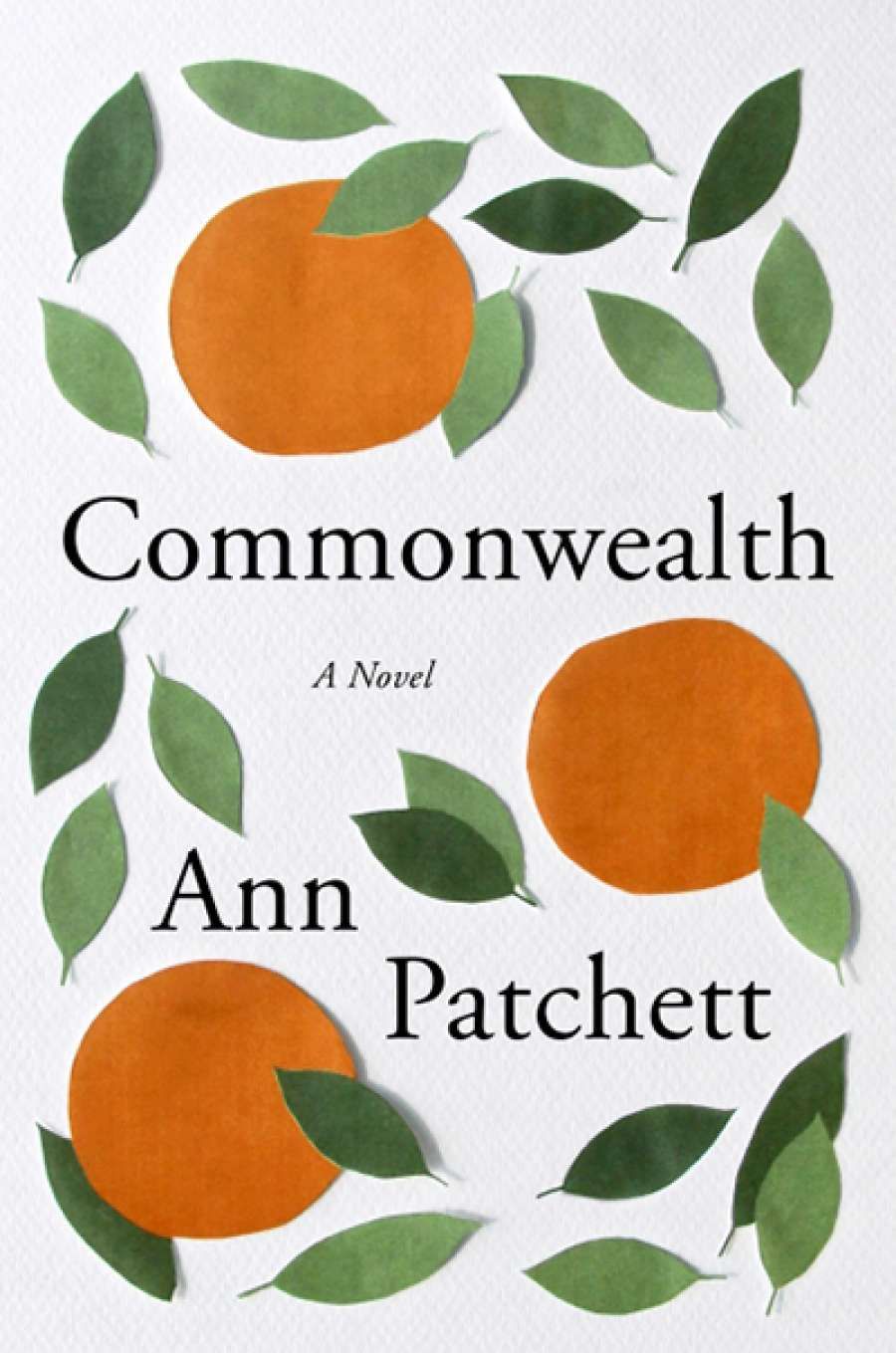
- Free Article: No
- Contents Category: Fiction
- Custom Article Title: Francesca Sasnaitis reviews 'Commonwealth' by Ann Patchett
- Custom Highlight Text:
Life, one of Commonwealth's minor characters remarks, is a series of losses. Teresa Cousins acknowledges that life is also other, better things, but that it is the losses that define us ...
- Book 1 Title: Commonwealth
- Book 1 Biblio: HarperCollins $29.99 pb, 322 pp, 9781408880395
Fast-forward fifty years and baby Franny is a grown woman taking her father to the UCLA Medical Centre for chemotherapy. What is left is the imperative to hear, to collect, and to remember the stories of a particular life before those stories die with the man. Franny comes to regret 'the things [she] didn't listen to, won't remember, never got right, wasn't around for'. Forgetting is the tragedy, she realises.
Between the fateful christening party, during which Bert and Beverly discovered their mutual, though not abiding, passion, and the noughties of extended families and elderly parents, Patchett plays the game of slow revelation, demonstrating an astute manipulation of the minutiae of daily life, and insight into psychological development and the see-saw of attraction-aversion, action-reaction.
The primary consequence of Bert and Beverly's attraction is the destruction of their first marriages and the effect this has on the two Keating girls and the four Cousins. Franny and her responsible sister Caroline live permanently with Bert and Beverly in Virginia and see their father for only two weeks in summer. Angry Cal, amenable Holly, silent Jeanette and Albie live with their mother Teresa in California but join the newlyweds and their step-sisters for the entire vacation. The blended family summers are not a success. The children do not particularly like each other but are united in hatred of their parents. Beverly retreats from the chaos of six children. Bert is the classic absent father, interested in his children only in the abstract. The children exploit their neglect. They find a handgun in the glovebox; they polish off the gin; they get rid of annoying Albie by feeding him Benadryl that sends the youngest child into a deep sleep. What they get up to would horrify any adult, but in the halcyon days of the 1970s there is no one around to notice.
 Ann Patchett (photograph by Heidi Ross)'Commonwealth' has obvious connotations: an independent state; a union of countries; a self-governing community; the general good. But Commonwealth is also the title of a novel within the novel. The young Franny, a law school dropout, meets a famous writer, an older man whose work she much admires, in the bar where she works as a cocktail waitress. Leon Posen has the reputation of a Philip Roth or John Updike, but he has been relying on past glory too long and is close to becoming an alcoholic. Leon is smitten and Franny is flattered that an Anton Chekov might be interested in her life.
Ann Patchett (photograph by Heidi Ross)'Commonwealth' has obvious connotations: an independent state; a union of countries; a self-governing community; the general good. But Commonwealth is also the title of a novel within the novel. The young Franny, a law school dropout, meets a famous writer, an older man whose work she much admires, in the bar where she works as a cocktail waitress. Leon Posen has the reputation of a Philip Roth or John Updike, but he has been relying on past glory too long and is close to becoming an alcoholic. Leon is smitten and Franny is flattered that an Anton Chekov might be interested in her life.
Posen can be accused of salvaging his career by stealing the story of Franny's family, but isn't everything fair game to the writer? Reality should not be confused with, but informed by, fiction. That real people recognise themselves in the characters is of little consequence. The pertinent question should be whether the fictional world is true to itself. The Keating–Cousins' reactions to Posen's Commonwealth vary from denial to mild amusement to shock, but when the inevitable film comes out, it is predictably wrong, a horror to their memories.
In the end, Franny may speculate on what might have happened if one stupid childhood act had not lead to a tragedy or if two people had not fallen in love or if they had not acted on that attraction or if, or if – a million ifs proliferate. She comes to the conclusion that 'to map out all the ways the future would unravel without the mooring of the past' is impossible. The temptation of one possible gain hardly outweighs the myriad of unforeseen losses. Therein lies the pathos of Commonwealth.


Comments powered by CComment